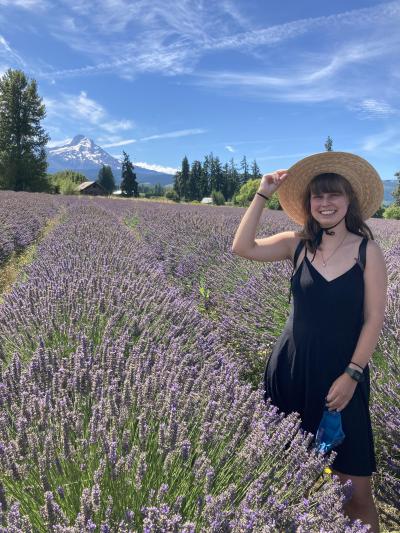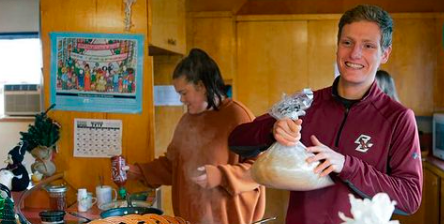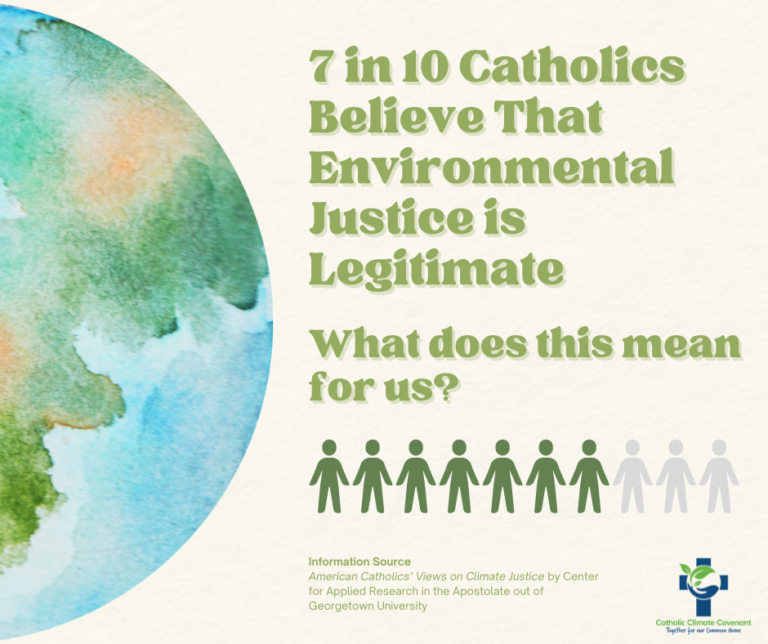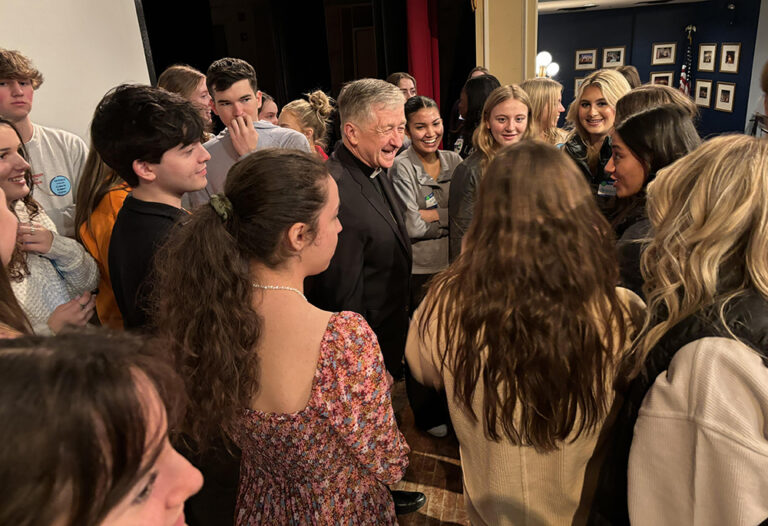In Catholic parishes and organizations around the country, young people are bringing their passions and gifts to the table in efforts to activate their communities for climate justice. Aaron Salzman and Marly Beck are two such people. Aaron and Marly have spent the better part of the last year serving as full-time volunteers with Jesuit Volunteer Corps (JVC) Northwest , a yearlong service program that places volunteers, many of them young adults, with community organizations across the northwestern United States. Among JVC Northwest’s organizational values is ‘social and ecological justice.’ This commitment to an integrated vision of social and ecological justice finds resonance with the Catholic social tradition, including Pope Francis’s groundbreaking encyclical Laudato Si’ with its emphasis on integral ecology. As Jesuit Volunteers (JVs), Marly and Aaron embody Pope Francis’s call to build communities of care, to challenge injustices and accompanying systemic inequities, and to participate in creative solutions to the climate and environmental crises.

In her work as a JV at the FISH Food Bank in Hood River, Oregon, Marly has the opportunity to witness the generosity of local farmers and gardeners who donate produce to the foodbank. For her, this is a source of encouragement in the face of crises that can feel overwhelming: “They are participating, building their soil and planting in ways that are organic and good for the earth, and lessening that carbon footprint of everything we eat, and able to provide for other people.”
Throughout his papacy, Pope Francis has consistently decried what he calls “throwaway culture.” He argues that this culture, arising in part from the interplay of consumerism and capitalism, renders things or people deemed inconvenient as disposable. In contrast, Catholic social teaching emphasizes the inherent value of the human person and creation, affirming that natural ecosystems are built to be in relationship and that each smaller part has significance as a part of the larger cycles sustaining abundant life (LS 22).
“I spend a humorous amount of time thinking about individual plants,” Marly reflected with a laugh. Marly’s thoughtful attention and care to the garden acknowledges a larger sanctity and interconnectedness: each individual element has inherent worth and value worth attending to and caring for.
Throughout the pandemic, the garden at FISH Food Bank became a gathering place for many local high schoolers, because other indoor gathering spots were closed: “They come frequently and bring their friends and hang out…and they garden! Some days are hang-out days, but, you know, most days are garden days.” Marly’s delight in the high schoolers’ presence this year —high schoolers who could have just as easily been seen as a nuisance and impediment to the work—is evidence of how Marly is using her service experience to cultivate a culture of encounter rooted in gratitude that is antithetical to throwaway culture. From the bugs in the soil, to the bountiful zucchini harvest donated by a local gardener, to the groups of high schoolers hanging with their friends in the garden, each delightful surprise is a gift, and a part of a larger interconnected web extending beyond the garden. Marly acts out of a “spirit of generous care” that, for Pope Francis, always begins from a place of gratitude for the loving gift of creation (LS 222).

Just over an hour west of Hood River, Aaron serves as a JV in Portland at Ecumenical Ministries of Oregon, where he focuses on public policy related to environmental justice. Aaron shared how some of the policies he is currently working on simultaneously prioritizes caring for the environment and for those most impacted by social inequities through corresponding clean energy requirements for large corporations and differential consumer energy rates based on income. Aaron said of the legislation, “As we think about decarbonizing the electric grid, it’s equally important [to consider] who has access to electricity.” In other words, the important question is not only “How do we make energy clean?” but also “How do we make it accessible and affordable?”
This type of legislation embodies a Catholic framework to the climate crisis by directly addressing interrelated environmental and social concerns. In Laudato Si’ Pope Francis articulates this concretely: “We are faced not with two separate crises, one environmental and the other social, but rather, with one complex crisis which is both social and environmental.” (LS 139)
For both Aaron and Marly, there is no shortage of moments of awe at their service sites. A young adult himself, Aaron shared that he experiences awe when witnessing the environmental activism of people even younger than him: “So many people who can’t even vote, who are still just getting so active…they’re blowing everyone away.”
For Marly it’s the beauty of the natural environment in Hood River, in particular her drive to and from FISH Food Bank, especially through the changing seasons: “The blossoms….my whole world for one week was lit up by flowers.” Marly continued, “That view humbles me, and I enjoy the humbling nature of being reminded that I am a small part of a large seasonal change.” These moments of awe and wonder are not only key to spiritual life, but furthermore can inspire and sustain action for climate justice.
As Marly and Aaron’s stories demonstrate, attending to moments of awe and wonder in creation, participating in grounded, community-based solutions, and acknowledging a greater interconnectedness is not only inherently Catholic, but it is also a framework for climate justice that is relevant and meaningful to young people, allowing them to participate in climate action and make meaning in ways that are both authentic and significant.
Claire Lucas is originally from Oregon, and she just completed two years as a JV/Americorps member serving as a caretaker for Northern Cheyenne elders in Ashland, MT. She graduated from Seattle University in 2019 with a bachelor’s degree in psychology and theology and religious studies.


